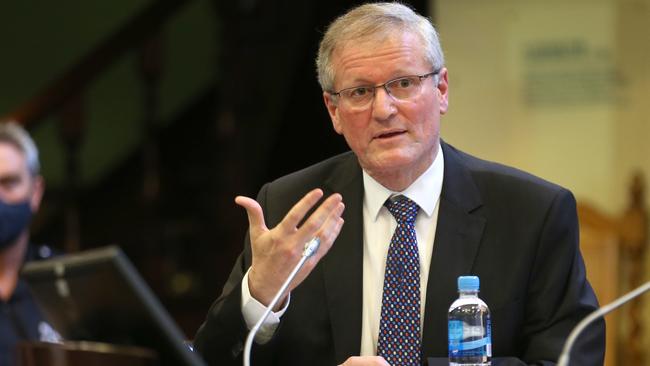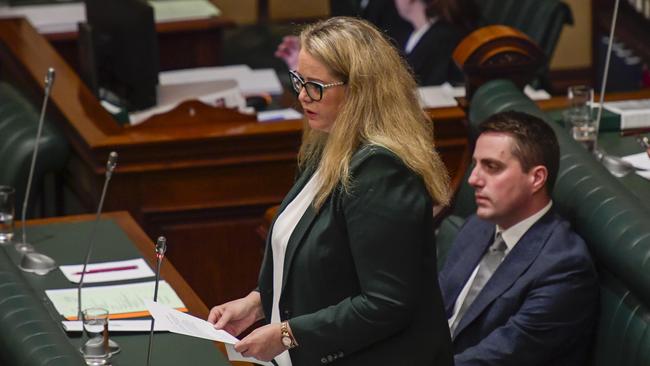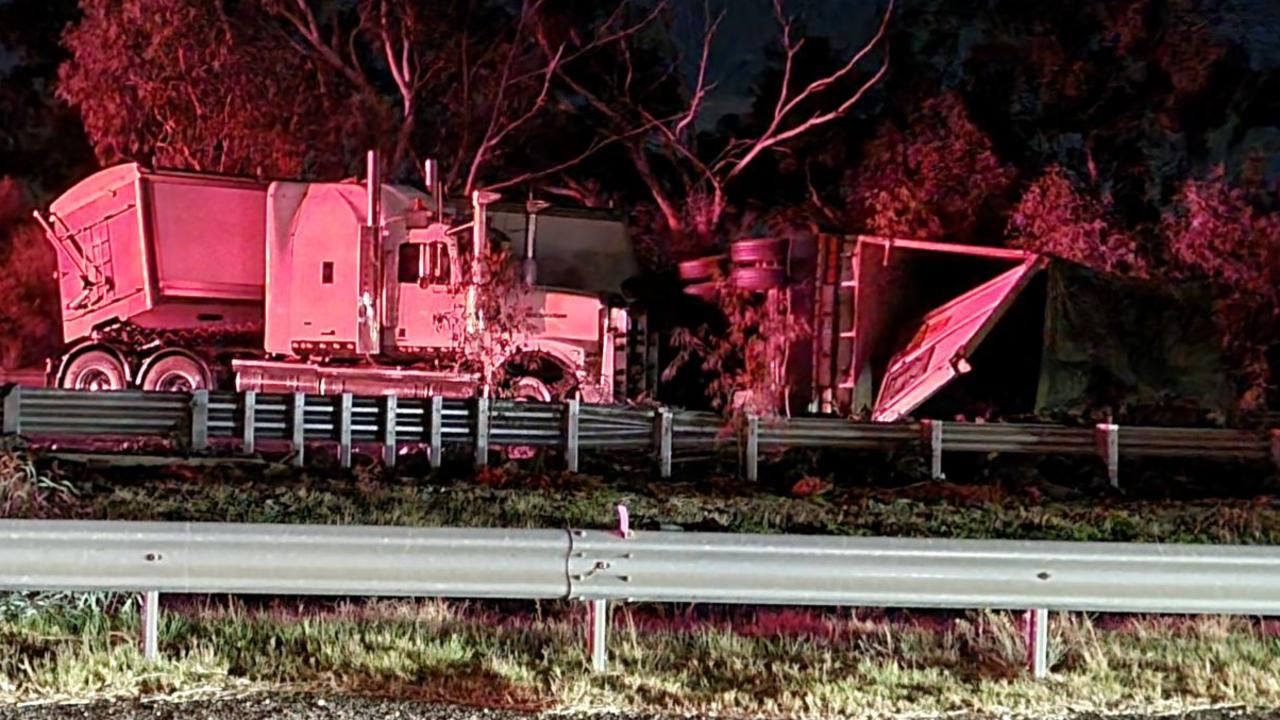SA chief psychiatrist Dr John Brayley takes unprecedented action on Mental Health Triage service
The urgent service that’s supposed to help some of South Australia’s most vulnerable people will now be under the boss's microscope.

SA News
Don't miss out on the headlines from SA News. Followed categories will be added to My News.
Vulnerable South Australians using an urgent mental health crisis hotline are abandoning calls or being left waiting for unacceptable periods, prompting an unprecedented step by the state’s chief psychiatrist.
The Office of the Chief Psychiatrist placed conditions on the Mental Health Triage service to mitigate risks due to the rate of calls being abandoned, and call-wait times.
It will be in place for six months and be subject to regular monitoring and use.
The MHT acts as an advice or referral service and is staffed by senior and experienced clinicians dealing with people experiencing a mental health emergency or crisis situation.
Chief Psychiatrist Dr John Brayley said his office had conducted a number of inspections on the service – most recently on May 9 – which recorded a high rate of caller abandonment – or people hanging up before calls are answered – and long wait times.
The service averages 125 calls a day, or 3770 a month.
Chief Psychiatrist Dr John Brayley said the conditions sought to “address wait times and the call abandonment rate”.

While noting upgrades the Central Adelaide Local Health Network had made to the service including “in clinical supervision, induction and training, service governance, auditing and service documentation”, and replacing computer and phone equipment, there remain “limitations in the service’s ability to reduce call waits and abandonment”.
That, he said, was “linked to the service model and resourcing”.
“In the interim, the gazettal conditions have a risk mitigation focus on addressing call abandonment and the gap between current capacity and needed capacity to promptly respond to calls.
“The conditions also require regular reporting to the office of performance and will be initially in place for six months.”
Dr Brayley noted the CALHN and Mental Health Strategy and Planning Branch in the Department of Health and Wellbeing has “been working on a new model” under a federal and state agreement.
“A new Commonwealth non-emergency intake line will better enable Mental Health Triage to focus on its emergency role rather than taking other calls, and to further develop its own systems,” he said.
CALHN acting mental health service program director Jay Mullan said the new telephone platform, introduced this month, included a call-back option.
Mr Mullan said the average wait time was six minutes “dependent on the demand experienced by the service” which was in line with industry benchmarks.
“A key feature of the new platform is a call-back option which allows consumers to receive support without having to wait until the next available line, it also provides improved access to data, reporting and call recordings,” he said.
“While call volumes often fluctuate, we regularly monitor the number of calls to manage community demand while supporting staff safety and wellbeing.”
Mr Mullan said abandoned calls had reduced by 11 per cent since 2021, with the newly introduced callback service expected to further reduce that rate.
He said about 25 per cent of callers had opted for the callback service since it was introduced this month.
Health Minister Chris Picton defended the service’s record under his government, and additional funding to the CALHN.
Mr Picton said there had been improvements in the service’s performance despite this being the first time such conditions had been placed on it.
“While the service has improved by 13 per cent since (February 2022), there is more work for CALHN to do and the Chief Psychiatrist Dr Bayley has my full support in ensuring that improvement continues,” he said.

Opposition Mental Health and Suicide Prevention spokeswoman Penny Pratt said more than the $5m allocated in the state budget to mental health was needed.
“It is unacceptable to have instances where a person suffering from serious mental health issues is waiting on the phone for such a long period of time that they hang up,” Ms Pratt said.
“Unfortunately, if people don’t get the support they need from the hotline, they are more likely to present to our overcrowded EDs which are unsuitable for their needs and can compromise staff safety.”
A rolling recruitment drive is under way to fill vacancies as they arise.
The Service is available on 13 14 65 and operates 24 hours, seven days a week,





